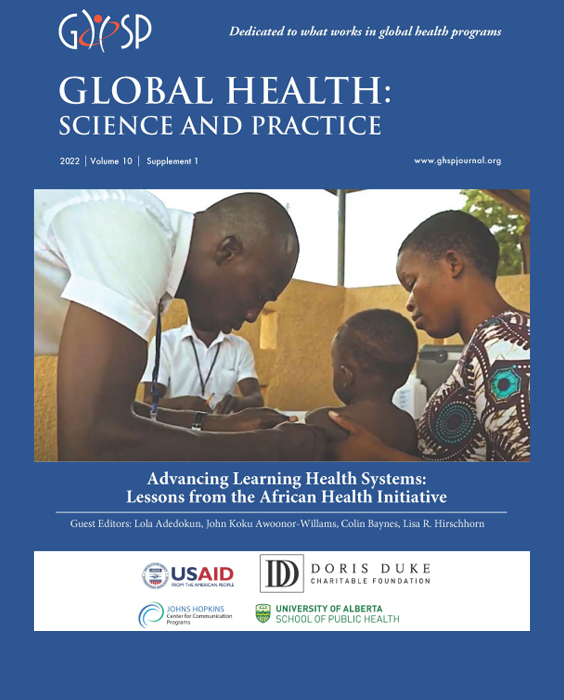During the first phase of the African Health Initiative, the foundation selected five teams from four institutions to implement proof-of-concept projects that would test a variety of health systems strengthening interventions over five to seven years. These teams also trained local staff on how to conduct implementation research as a way to build and sustain health systems that were robust and responsive to new and ongoing health challenges on the ground. Each Phase 1 project was required to collect data showing whether or not their interventions resulted in measurable impacts on population health and to make that data publicly available to country leaders and the broader field. (To learn about the second phase, please visit the Phase 2 page.)
Goals & Strategies
Population Health Implementation & Training (PHIT) Partnerships
Central to the Initiative is the establishment of large-scale Population Health Implementation & Training (PHIT) Partnerships that link implementation research and training directly to health care delivery.
In 2009, DDF awarded four grants ranging from $8 million to $15 million each to support PHIT Partnerships working in Ghana, Mozambique, Rwanda, Tanzania and Zambia.
PHIT Data Collaborative
Research conducted by each PHIT Partnership measured the impact of their interventions on reducing child mortality and other health outcomes, in addition to analyzing indicators of health systems performance. The partnerships participated in a data collaborative to share information and convene annually. The foundation also committed to ensuring that relevant data and information collected by the partnerships be made available to the public. To achieve these goals, a PHIT Data Collaborative was established.
PHIT Partnership Implementation Research Framework
One of the main goals of the African Health Initiative is to improve health systems planning by providing strong evidence to the global health community as to what works and what doesn't when implementing large-scale, integrated primary healthcare. With that goal in mind, DDCF asked the Institute of Health Metrics and Evaluation to develop a common conceptual framework for implementation research for the purposes of AHI that would serve as the PHIT Partnership Implementation Research Framework.
Grantmaking Process
The PHIT Partnerships were selected using a three-stage competitive review process.
- The foundation first issued an open call for letters of interest from teams working in nine target countries.
- Following an expert review of the 137 letters of interest received, the foundation invited 29 teams to submit proposals for planning grants of up to $150,000 each. Eleven teams received planning grants following a second expert review process.
- During the third and final stage, members of the African Health Initiative's Advisory Council and other experts in epidemiology, health economics and statistics reviewed each planning grant team's proposal on the following criteria: 1) potential to significantly strengthen the local health system and improve health; 2) strength and quality of the team; 3) presence of local leadership; 4) alignment with local and national activities; 5) ability to build on existing programs; and 6) innovation and potential for replication.
Based on the recommendations of the expert reviewers and availability of DDCF funds, the foundation selected five teams from four institutions to receive grants ranging from $8 million to $15 million each over five to seven years.
- Columbia University, Mailman School of Public Health – Ghana PHIT Partnership
- Columbia University, Mailman School of Public Health – Tanzania PHIT Partnership
- Health Alliance International – Mozambique PHIT Partnership
- Brigham and Women's Hospital, Inc. – Rwanda PHIT Partnership
- The University of Alabama at Birmingham – Zambia PHIT Partnership
The African Health Initiative does not accept unsolicited requests for funding.







